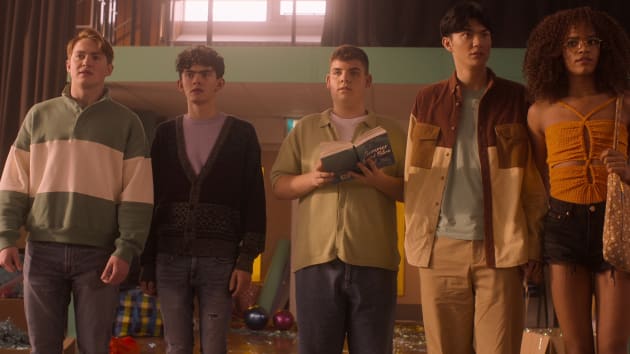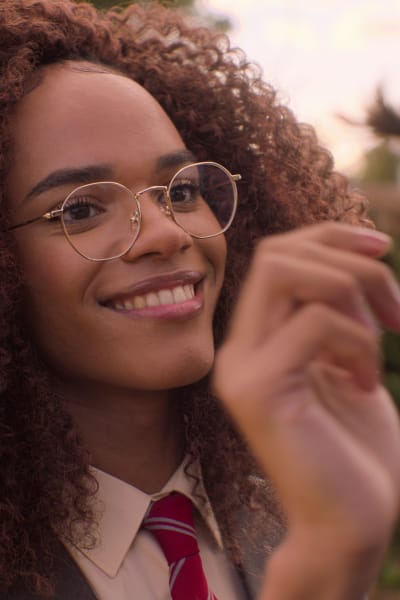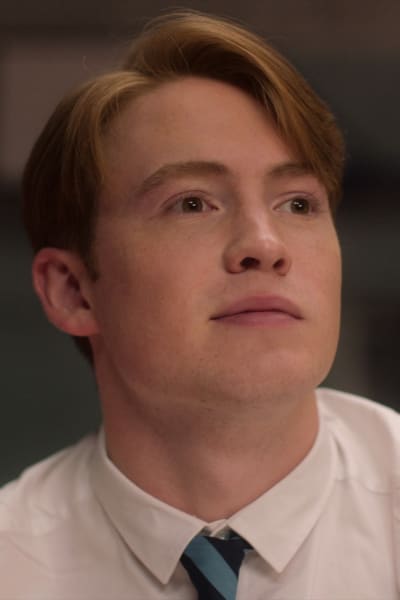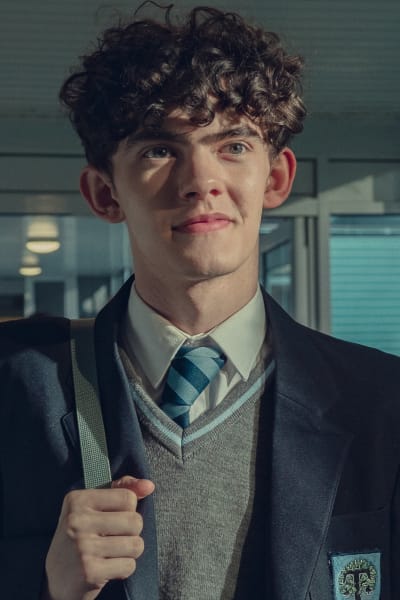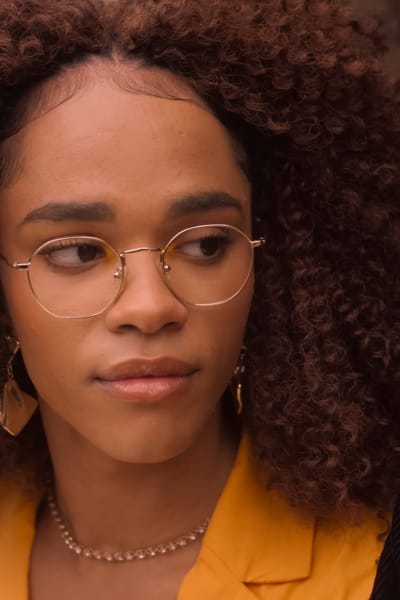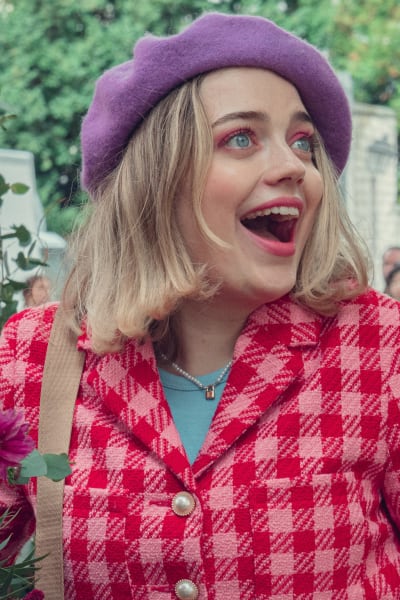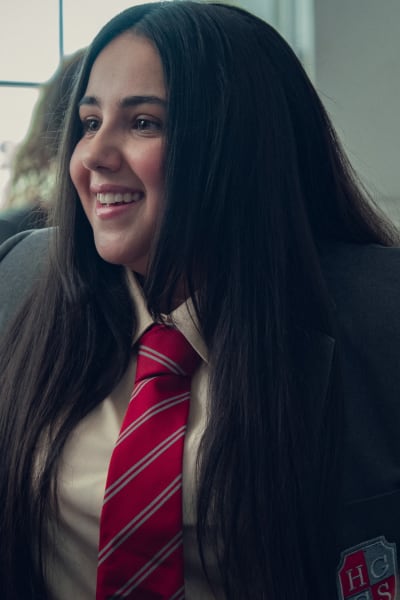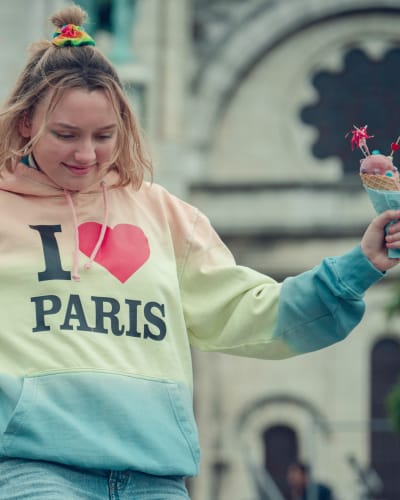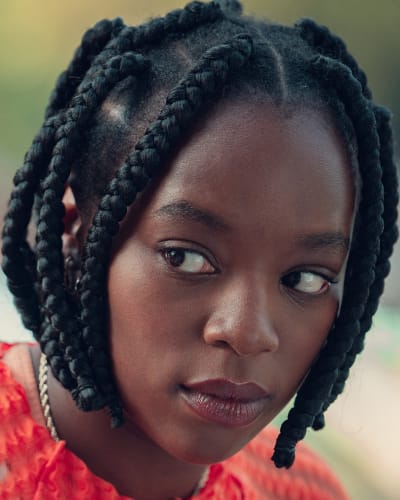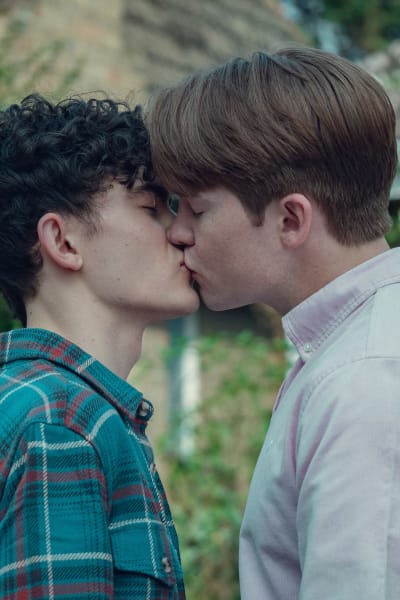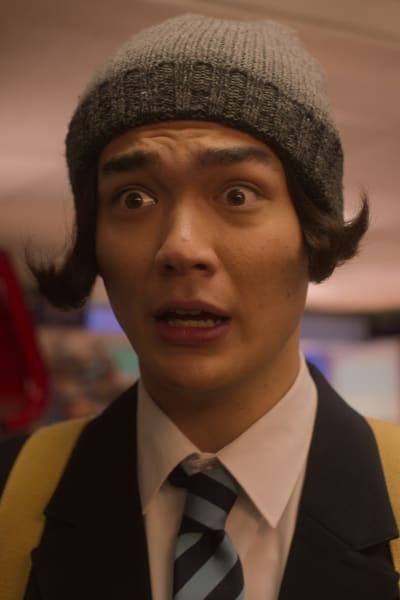Sometimes it is easy to get sidetracked by the nastiness of the world. We forget the good things life has to offer.
What sets Heartstopper apart in the queer media niche is its focus on queer joy. In creating a Heartstopper, spreading a message of queer optimism was at the forefront of Alice Oseman’s mind.
Before Heartstopper Season 2 premieres, Joe Locke, Kit Connor, Yasmin Finney, Will Gao, and Alice Oseman answered some questions about Heartstopper’s young legacy of showcasing queerness in a different light.
The wholesome focus on queer joy Heartstopper offers is fantastic. When asked why it was essential to have this story out there, Alice Oseman talked about how important it is to balance the nature of the stories being told.
“We need all kinds of queer stories: joyful stories, tragic stories, sexy stories, dark stories, silly stories… I could go on. Joyful stories are absolutely needed — queer people need to see that they can find happiness, friendship, love, and peace, despite the struggles they may be facing in their daily lives.
“But I don’t want that to discredit the need for all kinds of other queer stories! There can be no light without dark.”
Kit Connor gave a profound response, comparing and contrasting what Heartstopper does with other existing media.
“There’s a few objectives for Heartstopper. As a cast, as a group of actors, directors, filmmakers, one of our main objectives was to just have a show where you see queer people being happy and in love and having good friends around them.
“It’s a really important thing because if you look at something on the other side of the spectrum, like, It’s A Sin. That had just come out when we were making Season 1. It was this huge thing, and we were like, ‘Oh my God, that’s a queer show that’s done really well and hit the mainstream.’
“But then we were also thinking, ‘It’s also got that darkness that every bit of TV has these days.’
“A lot of it is great, great, great television. A lot of it has its place and is also equally important in many ways, shedding light on really difficult issues and having hard conversations, but at the same time, the space of queer media was so, so heavy and dark and sort of overbearing.
“With Heartstopper, a lot of people were crying by the end, but they were happy crying.
“Whereas for most queer media you watched before Heartstopper, you were crying because someone had died or something like that.
“It was just really depressing and overbearing and important, but I think we were in a time — and I think we still are in a time — where there’s a lot on that side, and there’s nothing on the other end where you just see queer people being happy, doing mundane things, and just living their life.
“That’s really what we’re going for.”
Joe Locke provided more insight, discussing how life imitates art and having happy art can lead to a happy life.
“I’ve seen some people use Heartstopper’s positivity as a negative, and it baffles me. You just want to watch depressing, sad stuff where everyone is awful, and the world is awful? You can’t create a world of joy without pumping some joy into it.
“If all we watched and all we consumed was media in which everyone dies, and everyone’s sad, then we’re never going to be able to have a world where people are happy because people don’t know what that looks like.
“Especially at the moment with the huge anti-trans movement that’s pushing forward. It’s so important that we show trans people aren’t dangerous. They’re just living and existing, and their existence doesn’t stop you existing.”
If queer joy is scarce on TV, trans joy is like finding water in the Sahara. Yasmin was kind enough to share why it is important to see trans love and joy now more than ever.
“Why is it vital for us to see trans love and trans joy on screen now more than ever? Representation is a powerful thing. With all the messages I get on Instagram, on Twitter, just everywhere that people can reach me on: Now that I’ve seen Elle, I get to come out to my mum.
“I get to watch the show with my parents; I get to feel my most authentic self. This is literally because you’re on the screen, and you’re just being yourself. And it’s shocking. Like this should have happened so long ago.
“I remember before Heartstopper came out, I was searching for that representation, but it was Americanised. I couldn’t really find somebody on screen who looks like me, who was my age, that sort of talks like me.
“It was mind-boggling when I got the audition. I was just like, “Wow, this is the start of everything.” I just knew how impactful it would be from way before I even got the role. I knew this role would change the world in that respect.”
Finding a TV show with multiple queer characters is rare too. Almost inexistent. Yet, Heartstopper’s queer characters outnumber their cishet counterparts, making it easier to tell more stories that impact the queer community.
Asked why it was important to explore so many different kinds of queerness, Alice presented that many queer people exist in queer friend groups, and thus it’s a realistic depiction.
“Because queer friendships exist and are actually very common! Often queer people are mostly friends with other queer people, and so this is what happens in Heartstopper.
“I love hearing stories about people who’ve grown up, realized that they’re queer, and suddenly all their friends start coming out as queer too.
“Queer people are just drawn to each other! It’s also always a good thing to show a variety of queer experiences because being queer is certainly not the same for everyone.
“While one TV show could never show every queer experience out there, I think showing multiple helps people to feel that there’s no ‘right’ way to be queer.”
Kit Connor separates different kinds of queerness that Heartstopper explores and their importance. He then talked about the power Heartstopper has in having many people’s voices.
“It’s really special to have a show where most of the lead characters are queer. In season one, the main one of the main topics we explored was bisexuality and exploration of acceptance of that. In season two, there are more gay characters.
“We go into more of Darcy and Tara’s storyline. We see more of Elle’s experience being a young trans girl, meeting other trans friends, and getting to relate with the experience that they’ve had growing up.
“Trans and nonbinary, in fact. I think that’s a really important thing. And as I said, Isaac’s storyline goes into asexual and aromantic exploration. Someone super educated and super well-read about these kinds of topics is still confused when it comes to his own identity and his own self, just like the rest of us.
“That’s a really big storyline in season two and a really beautiful one. One of the really powerful things about Heartstopper is that it is a voice for a lot of people. We’re not claiming to be educational or anything like that. But we do try and teach people that no matter what, it’s okay.
“It’s okay to not know, and it’s okay to explore, and it’s okay to work things out. You’ll get there. It’s going to be the best thing ever when you do.”
Joe Locke highlighted how queer media is dominated by male/male relationships when there are more kinds to explore in the community.
“One of the great things about the adaptation having more time than a comic book is that in the comics, it’s basically just Nick and Charlie’s relationship that is focused on.
“You have more time when you do a TV series, so Alice has been able to open up the stories of the other characters here, which is really great because queerness isn’t just one binary.
“You don’t have to just be one thing. We see a lot of gay male relationships in media compared to other relationships, so it’s great that we can share those other types as well.”
Yasmin Finney recalled how watching trans characters in shows like Pose or Orange is the New Black empowered her and how relatable a lot of it was.
“When I look back at the shows I had when I was younger, there was Pose, which had an all-Black queer cast, which is amazing. I had Orange is the New Black with Laverne Cox.
“I had Paris Is Burning, just like a handful of things I could watch and think, ‘Wow, this is what I want to be. This is who I want to be.’ It’s all Americanized, though.
“But it’s still who I am deep down. I related to that. Especially Indya Moore and Evan Peters’ scene where she’s like, ‘Do you love me as a trans woman?’ I have not seen that scene in years because it just makes me cry all the time.
“Now, with Elle and Tao, it’s going to be a moment. It really is.
“It’s going to be a massive moment. I can just see it. I can just see people recreating that scene.
“I remember when I watched that Pose scene, and now I’m so proud that I’ve been able to create something that lives up to that and something that romanticizes a trans person in a positive light that’s not negative.
“And something that is just powerful to the viewer.
“I’m super grateful for that.”
Will Gao summarized everything by highlighting the importance of everyone feeling represented, seen, and heard.
“I think sexuality and orientation is a whole spectrum. There’s so many colors of the rainbow.
“It’s really important that we represent all of them. It’s really cool that we represent a lot of them in one show within the main arc.
“That’s really beautiful. It’s important to make sure everyone feels represented and seen and heard.”
Heartstopper Season 2 is currently available on Netflix.
Denis Kimathi is a staff writer for TV Fanatic. He has watched more dramas and comedies than he cares to remember. Catch him on social media obsessing over [excellent] past, current, and upcoming shows or going off about the politics of representation on TV. Follow him on Twitter.
